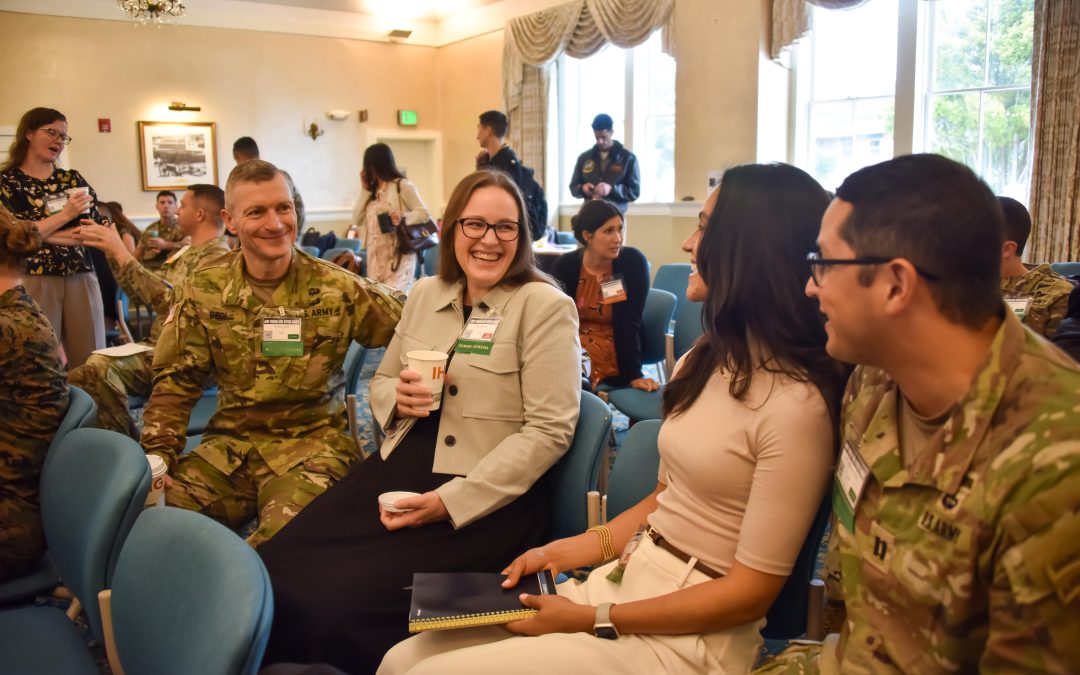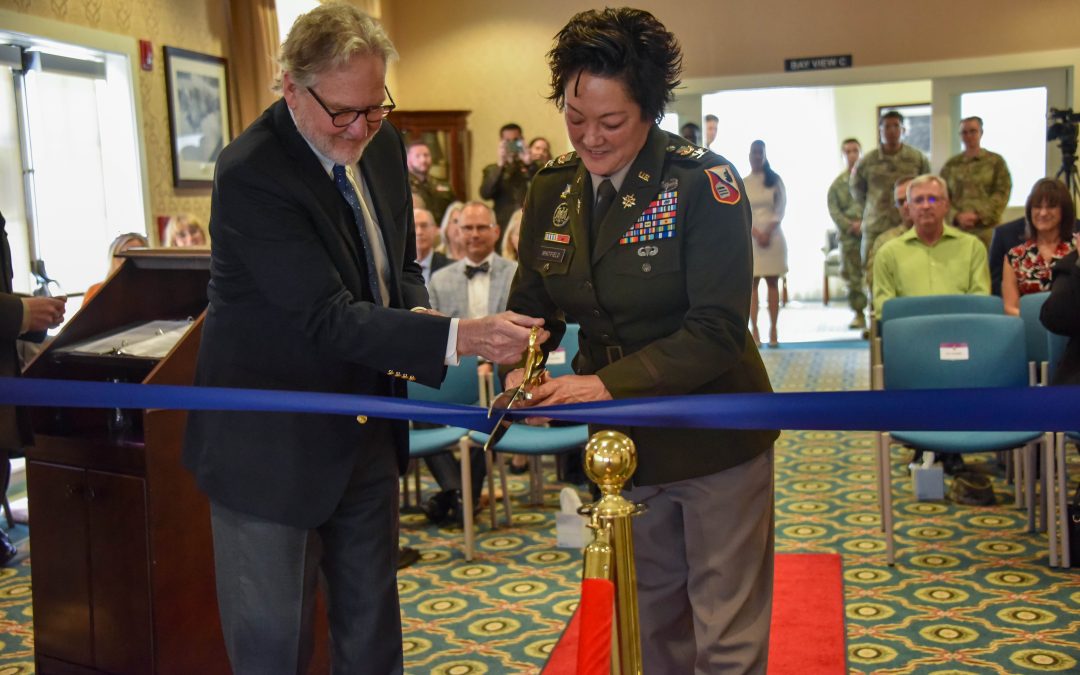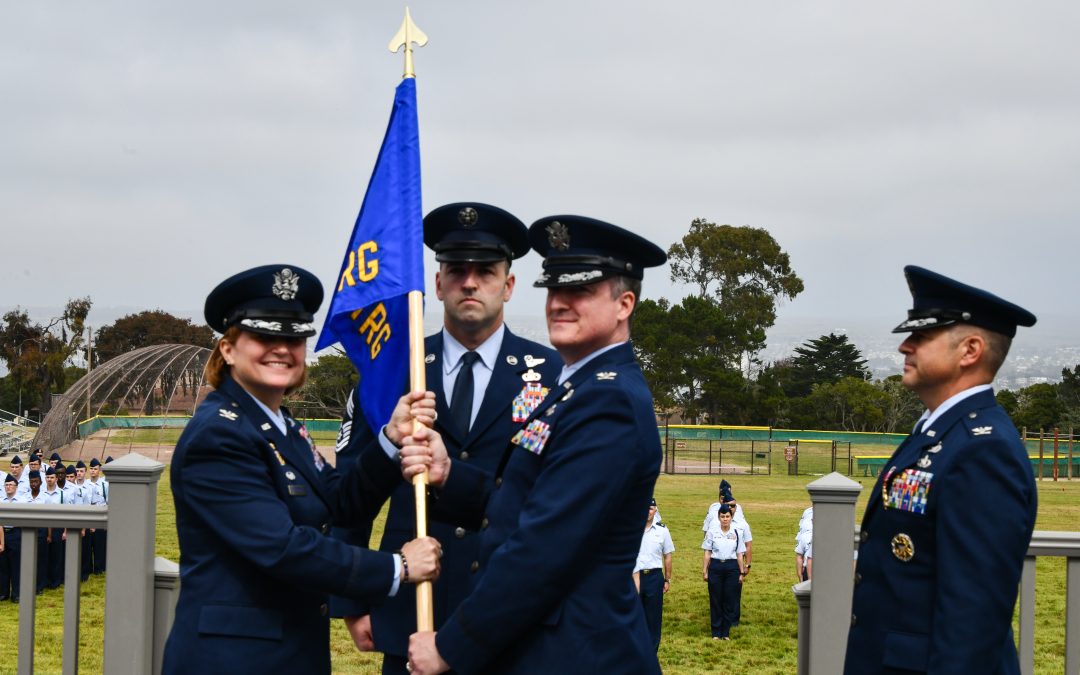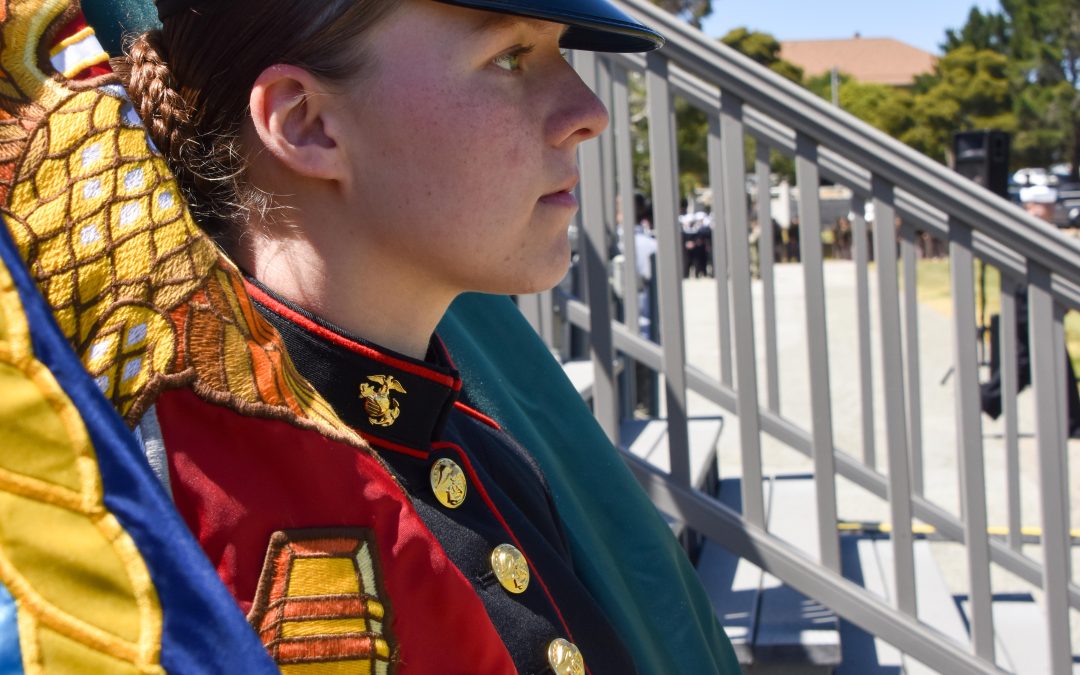By Natela Cutter
The Defense Language Institute Foreign Language Center held a Hall of Fame induction ceremony Nov. 5, welcoming four new members and simultaneously marking 80 years since the inception of the Institute.
The selectees for 2021 are: retired Air Force Col. Dan Scott, former DLIFLC assistant commandant; retired Army Col. Vladimir Sobichevsky, former DLIFLC commandant; retired faculty member Dr. Luba Grant; and retired Army Master Sergeant Alan Ravitz, a Persian Farsi and Spanish language graduate.
“Each of these inductees has distinguished themselves through their dedication to foreign language and the understanding of foreign cultures,” said DLIFLC Commandant Col. James Kievit. “We want to honor them [as they] join the other members of this distinguished group who have made lasting contributions to language training and military linguist operations within the DoD or whose actions have significantly advanced foreign language policy.”
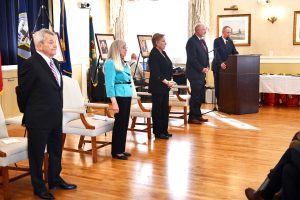
The Defense Language Institute Foreign Language Center held a Hall of Fame induction ceremony Nov. 5, welcoming four new members and simultaneously marking 80 years since the inception of the Institute.
Ravitz, the oldest member of the inductees, graduated twice from DLIFLC, once from the Persian Farsi program in 1963 and once from the Spanish program in 1968. He played a significant role in “Operation Eagle Claw” as a member of the Delta Force that attempted to rescue 52 American hostages held at the U.S. Embassy in Iran in 1979. Two of the hostages were Ravit’z close friends, leading him to volunteer for the mission.
“I can attribute every blessing and success in my life directly back to having attended the Defense Language Institute and the journey that I started on almost 60 years ago today,” he said.
Kievit presented each inductee with a plaque inscribed with their name and date of induction into the Hall of Fame, along with a certificate and a book on the pictorial history of DLIFLC.
Retired Air Force Lt. Col. Maria Constantine, who worked from 1993 to 1995 for Sobichevsky, accepted the plaque and gifts on behalf of the deceased colonel’s family members.
“What I loved about Sobi, as we called him, was that he was rough and tough but also decisive and made decisions quickly,” she said.
At a time when the Institute was facing a Base Realignment and Closure action, Sobichevsky went to the Pentagon with Constantine to defend the need for the language school to stay open an remain on the Monterey Peninsula.
It was also with Grant’s invaluable help that the Institute was able to ride out the storm that was BRAC. Grant, a visionary leader, teacher, negotiator and valued advisor to the command, began working at DLIFLC in 1972 and retired after 42 years of service.
“When I came to DLIFLC only one fifth of the students were female and nearly all faculty were male,” said Grant, who was one of the first female instructors hired through competitive selection and went on to be the dean of three schools.
It was during Grant’s tenure as dean of Asian School I, where Chinese, Japanese, Korean and Tagalog were taught, that the post 9/11 Proficiency Enhancement Program initiative began to take shape through dean council meetings.
By 2005, the DoD had accepted the PEP to improve student foreign language proficiency, which entailed a substantial investment into the foreign language program.
As the assistant commandant from 2006 to 2008, Scott, then an Air Force colonel who had recently returned from the field, understood the necessity of improving graduation rates from firsthand experience. Scott oversaw the proper disbursement of $362 million received to implement PEP over five years.
“My goal was to make language training better to get ready for the next generation…I became known as the money guy, I briefed and briefed and briefed,” said Scott, speaking about his days spent at the Pentagon to explain how the Institute would spend its money and require more over the years.
The ceremony concluded with the cutting of a celebratory cake by the current DLIFLC Assistant Commandant, Col. Jennifer Saraceno, using a saber.
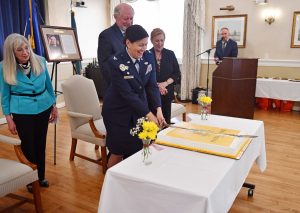
Col. Jennifer Saraceno, the current DLIFLC Assistant Commandant, cuts a celebratory cake using a saber during the Hall of Fame ceremony held on the Presidio of Monterey Nov. 5, 2021.
The DLIFLC Hall of Fame, established in 2006, now consists of 32 members, honoring those who have been advocates for the significance of foreign language use in the defense of national security. The hall is a permanent display of photos and biographies at the Presidio of Monterey AISO library.
The selection of new Hall of Fame members in general occurs every five years. Nomination is possible through the Institute website on a continuous basis.

